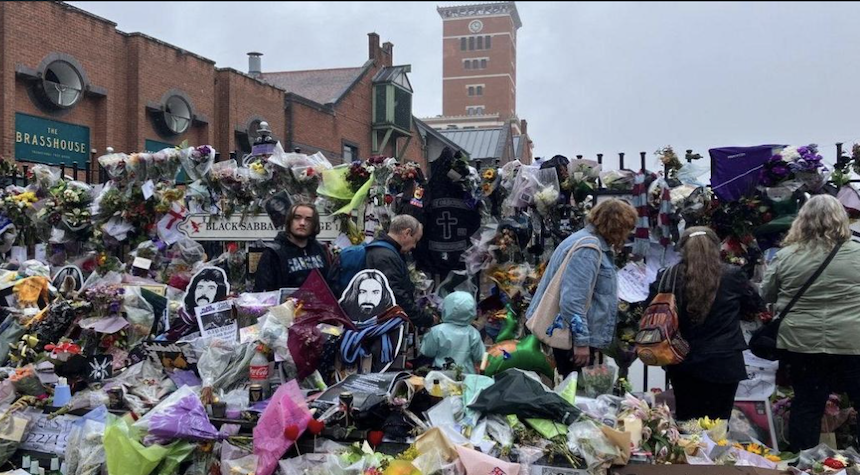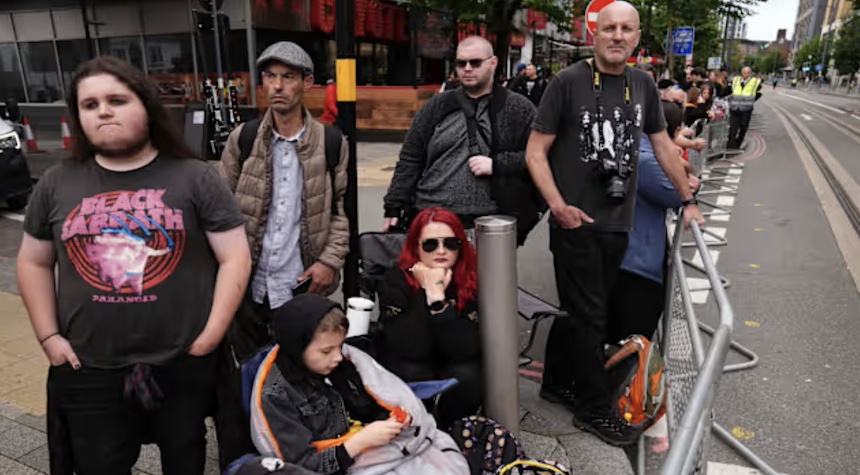The story unfolding in Birmingham, England, is as much about the soul of a city as it is about the passing of a legend. Ozzy Osbourne, the self-proclaimed Prince of Darkness and a son of Birmingham’s industrial crucible, is making his final journey through the streets that forged him.
This isn’t just a funeral procession; it’s a pilgrimage for the faithful, a testament to the enduring power of music to shape a community’s identity. Thousands of Black Sabbath devotees, their hearts as heavy as the music that defines them, will line Broad Street to pay homage to a man who turned the clangor of factory life into a symphony of rebellion.
Osbourne’s hearse, accompanied by a brass band playing a dirge as solemn as a winter’s night in the Midlands, will wind its way to the Black Sabbath bench. It’s a journey that echoes the band’s rise from working-class obscurity to the pantheon of rock royalty.
Ozzy and his bandmates recently received the Freedom of the City, a recognition as weighty as the riffs that made them famous. It’s a reminder that even in death, Osbourne’s impact on Birmingham is steady.

From the furnaces of Birmingham’s factories to the spotlights of the world’s stages, Ozzy carried the grit and determination of his hometown with him.
The question that keeps bouncing around my mind is this: How does a city honor a man who both embodied and transcended its identity? The answer, it seems, is with a mixture of civic pride and rock and roll defiance that would make Ozzy himself proud.
Ozzy Osbourne’s legacy is as complex and enduring as the industrial heritage that gave birth to him. He was a man of contradictions, capable of shocking antics and surprising vulnerability, often in the same breath.
Birmingham will never be the same without its Prince of Darkness. In the end, Ozzy’s story is America’s story: a tale of reinvention, resilience, and the unbreakable bonds of community.

